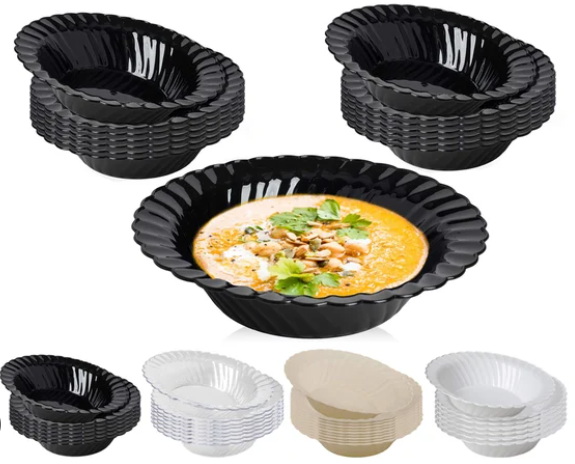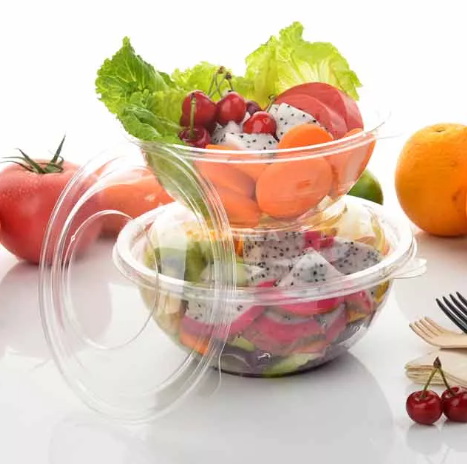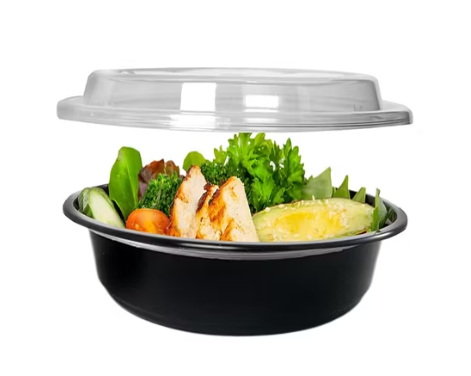
Content Menu
● Introduction to Disposable Plastic Bowl Moulds
>> Types of Moulding Processes
● Customization of Disposable Plastic Bowl Moulds
>> Benefits of Customization
● Trends in Plastic Bowl Mould Design
>> Eco-Friendly Alternatives
● Challenges and Opportunities
>> Collaboration with Manufacturers
● Sustainable Practices in Plastic Bowl Mould Production
>> Role of Advanced Materials
>> Impact of Government Regulations
● Future Trends in Plastic Bowl Mould Design
>> Integration of Smart Technology
● Market Growth and Projections
>> Consumer Preferences
● Conclusion
● FAQ
>> 1. What Materials Are Used for Making Disposable Plastic Bowl Moulds?
>> 2. Can Plastic Bowl Moulds Be Used with Different Types of Plastics?
>> 3. How Long Does It Take to Produce a Plastic Bowl Mould?
>> 4. What Are the Trends in Plastic Bowl Mould Design?
>> 5. How Can Mold Maintenance Be Ensured?
● Citations:
Disposable plastic bowl moulds are essential tools in the production of single-use plastic bowls, which are widely used in the food industry for packaging and serving. These moulds are designed to shape molten plastic into bowls of various sizes and shapes, catering to diverse applications and requirements. The customization of disposable plastic bowl moulds is a critical aspect that allows manufacturers to tailor their products to meet specific market demands, enhance brand recognition, and improve product functionality.

Introduction to Disposable Plastic Bowl Moulds
Disposable plastic bowl moulds are typically made from durable materials such as steel, which ensures their longevity and ability to withstand the high temperatures involved in the injection moulding process. The moulds are crafted with precision to ensure that the final products have consistent quality and design.
Types of Moulding Processes
There are several types of moulding processes used for producing plastic bowls, including:
- Injection Moulding: This is the most common method for producing large quantities of plastic bowls. It involves injecting molten plastic into a mould, where it cools and solidifies into the desired shape.
- Compression Moulding: This method is used for producing stronger bowls by pressing plastic between two metal plates. It is efficient and reduces waste.
- Thermoforming: Suitable for making disposable bowls, this process involves heating a plastic sheet until it becomes pliable and then shaping it into a bowl.
Customization of Disposable Plastic Bowl Moulds
Customization is a key feature in the production of disposable plastic bowl moulds. Manufacturers can tailor the moulds to create unique bowl designs, sizes, and shapes according to specific product needs. This includes customizing the material, color, and even integrating branding elements such as logos directly into the moulds.
Benefits of Customization
1. Market Differentiation: Customized moulds allow businesses to differentiate their products in a competitive market by offering unique designs that appeal to consumers.
2. Brand Recognition: Incorporating brand logos or specific designs helps in enhancing brand recognition and loyalty.
3. Functional Enhancement: Custom moulds can be designed to improve the functionality of the bowls, such as adding handles or changing the depth for specific applications.
Trends in Plastic Bowl Mould Design
The trends in plastic bowl mould design are shifting towards sustainability and eco-friendliness. There is an increasing demand for bioplastics and moulds that can produce bowls from environmentally friendly materials. Additionally, moulds for single-use and reusable plastic bowls are becoming more popular as consumers seek convenient yet sustainable options.
Eco-Friendly Alternatives
Eco-friendly alternatives like rice husk bowls are gaining popularity. These bowls are made from natural materials, are biodegradable, and offer a sustainable alternative to traditional plastic bowls. Companies are also exploring materials such as bagasse (sugarcane pulp), which is compostable, heat-resistant, and microwave-safe[1].
Challenges and Opportunities
While customization offers numerous benefits, it also presents challenges such as increased production costs and the need for precise design specifications. However, these challenges can be overcome by working closely with experienced mould manufacturers who can provide tailored solutions.
Collaboration with Manufacturers
Collaboration with manufacturers is crucial for achieving successful customization. They can provide technical support, design consultation, and ensure that the moulds meet the required standards for production efficiency and product quality.

Sustainable Practices in Plastic Bowl Mould Production
The push for sustainability in plastic bowl mould production is driving the adaptation of moulds to accommodate sustainable plastics, such as biodegradable polymers and recycled materials. Using post-consumer recycled plastics introduces variability, necessitating moulds with enhanced venting and robust runner systems to manage inconsistent material behavior[7].
Role of Advanced Materials
Advanced materials like high-performance polymers and bio-based polymers are increasingly used to enhance strength, chemical resistance, and biocompatibility. These materials not only improve product quality but also contribute to a more sustainable production process[6].
Impact of Government Regulations
Government regulations and bans on single-use plastics are prompting manufacturers to innovate in the design and materials used in disposable food containers. Compliance with these regulations is transforming the market, driving businesses to look at recyclable, biodegradable, and reusable packaging options while remaining cost-effective and operationally efficient[4].
Future Trends in Plastic Bowl Mould Design
As industries strive for sustainability, efficiency, and customization, plastic bowl mould technology is transforming significantly. Key trends include the use of sustainable materials, smart moulds, and additive manufacturing. Smart moulds, for instance, integrate real-time monitoring and optimization capabilities, enabling automatic adjustments to prevent defects and improve part consistency[7].
Integration of Smart Technology
The integration of smart technology into moulds is revolutionizing production by enabling real-time monitoring and optimization. Sensors embedded in the mould track critical parameters like temperature, pressure, and cycle time, allowing for automatic adjustments to enhance production efficiency[7].
Market Growth and Projections
The disposable food containers market is set for steady growth, projected to reach USD 29,774.8 million by 2035 with a CAGR of 4.4% from 2025 to 2035. This growth is driven by consumer preferences for convenience and sustainability, as well as regulatory pressures to reduce plastic waste[4].
Consumer Preferences
Consumers are increasingly seeking convenient and sustainable packaging solutions. The rise of meal delivery and takeaway services has increased demand for disposable food containers that are both practical and environmentally friendly[4].
Conclusion
Disposable plastic bowl moulds can indeed be customized to meet specific needs, offering businesses the opportunity to differentiate their products, enhance brand recognition, and improve functionality. As the industry moves towards more sustainable practices, customization will play a key role in developing eco-friendly solutions. By leveraging advanced moulding technologies and collaborating with experienced manufacturers, companies can create innovative and environmentally conscious products that cater to evolving consumer demands.

FAQ
1. What Materials Are Used for Making Disposable Plastic Bowl Moulds?
Disposable plastic bowl moulds are typically made from durable materials like steel, such as H13, S136, etc., which provide longevity and resistance to high temperatures.
2. Can Plastic Bowl Moulds Be Used with Different Types of Plastics?
Yes, plastic bowl moulds can be used with various types of plastics, including PP, PS, ABS, etc., depending on the intended application and desired properties of the final product.
3. How Long Does It Take to Produce a Plastic Bowl Mould?
The production time for a plastic bowl mould typically ranges from 5 to 7 weeks, depending on the complexity of the design and the manufacturer's workload.
4. What Are the Trends in Plastic Bowl Mould Design?
Current trends include sustainability, the use of bioplastics, and the development of moulds for both single-use and reusable plastic bowls to cater to consumer preferences for convenience and eco-friendliness.
5. How Can Mold Maintenance Be Ensured?
Proper maintenance of plastic bowl moulds involves regular cleaning, inspection, and lubrication to ensure durability and consistency in product shapes.
Citations:
[1] https://jollychef.com/blogs/news/the-future-of-disposable-tableware-sustainability-innovation-design-trends-for-2025
[2] https://www.alibaba.com/showroom/plastic-bowl-mould-design.html
[3] https://www.food-container-mold.com/news/industry-news/sustainable-practices-in-plastic-food-container-mould-production.html
[4] https://www.globenewswire.com/news-release/2025/03/12/3041529/0/en/Disposable-Food-Containers-Market-Set-for-Steady-Growth-Projected-to-Reach-USD-29-774-8-Million-by-2035-with-a-CAGR-of-4-4-Future-Market-Insights-Inc.html
[5] https://adrecoplastics.co.uk/building-sustainable-solutions-plastic-injection-moulding-and-eco-friendly-products/
[6] https://www.slideproducts.com/news/injection-molding-year-in-review
[7] https://www.immould.com/plastic-container-mold/
[8] https://simpt-mould.en.made-in-china.com/product/yGvpjBOddqWF/China-Advanced-Technology-Custom-Plastic-Precision-Mould-Injection-Molding.html
[9] https://www.containerandpackaging.com/resources/plastic-bottle-manufacturing-trends-2025
[10] https://www.rdmould.com/product/food-container-mould/the-production-process-should-pay-attention-to-industry-standards.html
[11] https://richfieldsplastics.com/blog/sustainable-practices-in-plastic-injection-molding/
[12] https://maadho.com/future-of-disposable-products-key-trends-and-innovations-in-2024
[13] https://www.techplastmould.com/showroom/customized-zhejiang-plastic-mold-storage-food-container-injection-mould.html
[14] https://www.linkedin.com/pulse/sustainable-practices-mold-manufacturing-how-going-green-jarvis-chen-ubzhc
[15] https://reads.alibaba.com/navigating-the-world-of-disposable-plastic-cups-market-trends-types-and-selection-tips/
[16] https://simpt-mould.en.made-in-china.com/product/PGKYOkdcMqVe/China-Custom-Plastic-Injection-Molding-with-Fast-Turnaround-for-Your-Projects.html
[17] https://www.deskera.com/blog/utilizing-the-best-practices-for-safe-and-sustainable-plastic-production/
[18] https://www.futuremarketinsights.com/reports/disposable-lids-market
[19] https://m.techplastmould.com/showroom/china-factory-price-good-service-customized-plastic-injection-container-thermoforming-mould.html
[20] https://www.activeplastics.co.nz/types-of-plastic-moulding

















